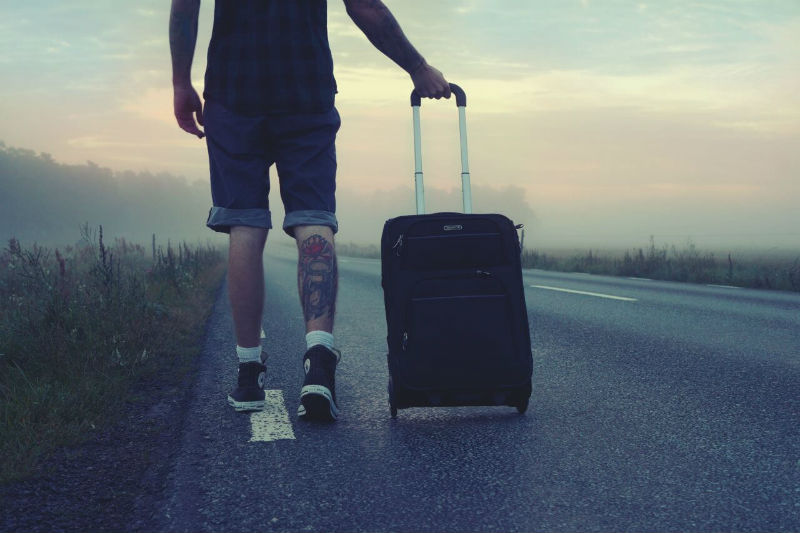Travel is a fun experience intended to ease your mind, body, and soul. Ironically, it can sometimes be detrimental to your health and end up giving you a completely opposite experience from your normal expectations. Healthy travel is not something that is often prioritized. However, we can all agree that no one wants to fall sick while on their trip or come back home with some extra unwanted pounds. So here are a few simple tips to follow for optimum health and fitness whenever you travel.
- Research

The importance of due diligence on your travel destination cannot be emphasized on enough times. Assuming that this is a completely new place, doing some research before-hand will be of great benefit to you. You will get to familiarize yourself with the weather, the different places, the cultures, food, hotels, and all the information you might possibly need before you even get there.
Research helps you prioritize and plan your trip accordingly. It will prevent a lot of inconveniences that suck the fun out of your trip. For instance, if the area speaks in a different dialect, you will get a dictionary for translations which will help you navigate menus, places, etc.
- Plenty of sleep
Travel is exhausting as most of the times you are moving around from place to place and with luggage. Get plenty of sleep both on transit and when you get to your destination. The recommended hours of quality sleep is 7 to 8 hours. Playtime may get in the way but make sure to prioritize sleep for a healthier immune system.
- Routine exercises
Chances are that you are going to be less motivated to work out if you don’t have what you need. Packing your gym wear is a convenient way to help you keep up with your workouts. You will have no excuse to skip your exercises and in case the hotel gym is packed you can still follow through with your exercises. Some lightweight equipment like a skipping rope is a great way to also workout on your expeditions.
Taking walks frequently while exploring different destinations is another way to sneak in some exercises without all the pressure. You will be sure to get a glimpse of some spectacular sights, smells, and sounds. For safety purposes, you may want to restrict your walking to daylight and enlist a local travel companion.
Another simple exercise you can do is to breathe. This is the easiest and can be done anywhere. Take a deep breath, hold it, and exhale. Repeat a few times and you will feel different almost instantly. Some 5-10 minute body stretches when you are pressed on time will also leave you feeling refreshed.
- Eat well
To avoid unhealthy and greased foods, you may want to pack your own healthy meals and snacks. It’s is the surest way to know what exactly goes into your food. It also saves you some money that you would have otherwise spent on unhealthy foods that don’t taste as great.
Be vigilant about the places you choose to eat in. Sometimes it can be hard to tell what has gone into the preparation method. A close bet would be to look at how many locals are at the establishment. That may say speak volumes about the food they serve as you want to avoid a case of food poisoning. If you are allergic to certain foods, make sure you communicate with the staff to avoid putting your health at risk.
For the most part, stick to healthy foods, fruits, and vegetables, and limit your intake of alcohol and sugary foods. Do not skip breakfast, order healthier meals, and whip up your own meals if you can.
- Hydration
Staying hydrated all through your trip will make a huge difference to how you feel. This is by drinking a lot of water and fluids. Pack an empty bottle that you will use to refill water. Staying hydrated also helps your body to distinguish between being thirsty or being hungry. This prevents you from accidentally overeating.
- Hygiene and sanitation
The areas you are visiting may sometimes lack adequate water or even soap, for simple hygiene practices. Since you are constantly in touch with people and things all through the trip, some wet wipes or hand sanitizers may come in handy. Make sure to always clean your hands before and after meals and after using the washrooms.
- Vaccinations, medications, and supplements
Vaccines and medicines are important to protect you from certain diseases you may be prone to while traveling in some regions. Some examples of vaccines you can take include Yellow fever, Typhoid fever, Hepatitis A and B, and even Traveller’s Diarrhea. Other preventive safety measures are carrying your own equipment like mosquito nets.
No matter how hard you try, sometimes it can prove difficult to eat a healthy and balanced diet. If you suspect that this might be the case on your trip, you can carry along your vitamins to supplement your meals.
- First aid kit
It is a good idea to carry a first aid kit with essential items for general emergencies. You can include items such as pain relievers, laxatives, band-aids, medication, etc.
- Protect your skin
Don’t forget about your skin especially since most of the times you will be outdoors. This means extended periods of exposure to the hot sun which can cause lasting damages to your skin. Sunscreens with a minimum SPF of 15 should do the trick but you have to keep reapplying after about two hours or so. If you are visiting an insect-prone area, make sure to wear insect repellents to prevent insect bites.
Lastly, don’t forget to enjoy yourself and let loose.…